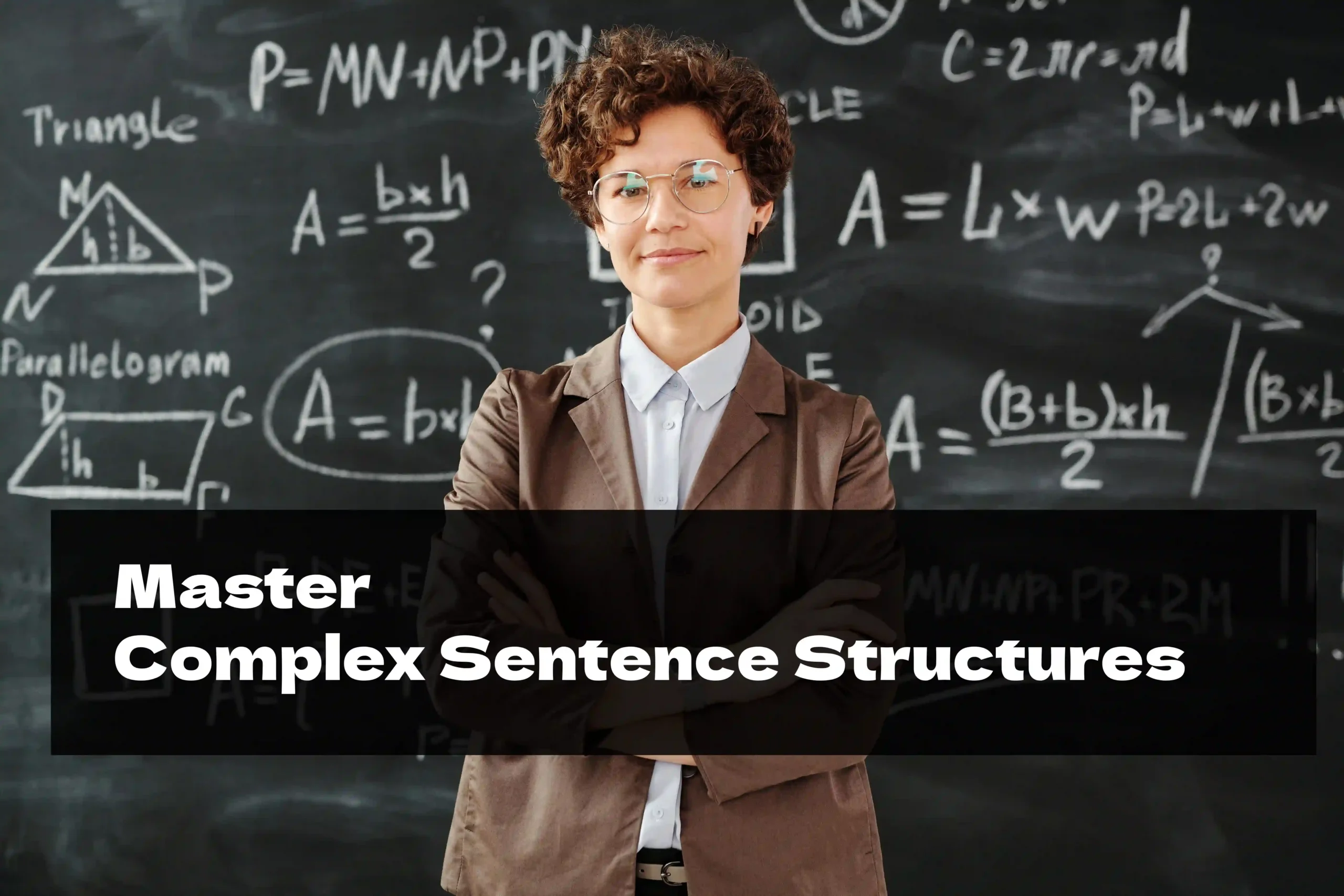Table of Contents
Certainly! Complex sentence structures can add depth and sophistication to your writing. Here’s a breakdown of various types of complex sentences along with examples
1. Subordinate Clauses: Complex Sentence Structures
A complex sentence often contains one independent clause and one or more subordinate (dependent) clauses. Subordinate clauses cannot stand alone as sentences.
Types of Subordinate Clauses:
- Adverbial Clauses: Modify verbs, adjectives, or other adverbs.
- Example: “I went to bed early because I was tired.”
- Adjective Clauses: Modify nouns or pronouns.
- Example: “The book that I borrowed was fascinating.”
- Noun Clauses: Act as a noun.
- Example: “What she said was surprising.”

2. Relative Clauses: Complex Sentence Structures
These are a type of subordinate clause that usually begins with a relative pronoun (who, whom, whose, which, that).
- Example: “The man who lives next door is a doctor.”
3. Conditional Clauses: Complex Sentence Structures
Conditional clauses describe a condition and its possible result. They often start with “if” or “unless”.
- Example: “If it rains, we will cancel the picnic.”
4. Participial Phrases
A participial phrase acts as an adjective and starts with a participle (a verb form used as an adjective).
- Example: “Running through the park, she saw a rare bird.”
5. Infinitive Phrases
An infinitive phrase will begin with an infinitive (to + simple form of the verb).
- Example: “To win the game, you must practice hard.”
6. Absolute Phrases
An absolute phrase combines a noun and a participle with any accompanying modifiers or objects. It modifies the whole sentence.
- Example: “The weather being rainy, we decided to stay indoors.”
7. Appositive Phrases
An appositive phrase renames or identifies a noun or pronoun.
- Example: “My friend Alice, a talented musician, will perform tonight.”
8. Complex Sentences with Multiple Clauses
Combining different types of clauses can create very complex sentences.
- Example: “Although it was raining, we decided to go hiking because we had planned it weeks in advance, and everyone was looking forward to it.”
Tips for Writing Complex Sentences
- Use Conjunctions and Relative Pronouns: Words like “although,” “since,” “because,” “which,” and “that” help connect clauses.
- Balance Your Sentences: Avoid making sentences too long and convoluted. Ensure they are clear and understandable.
- Vary Your Sentence Structure: Mixing simple, compound, and complex sentences makes your writing more engaging.
By incorporating these elements, you can enhance the complexity and richness of your writing.
4o
